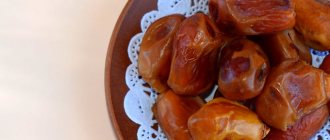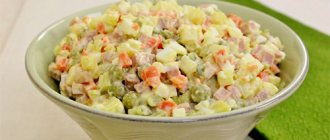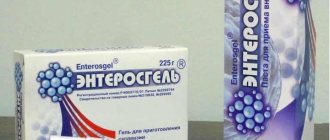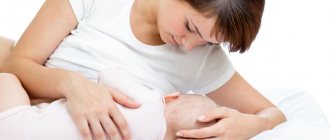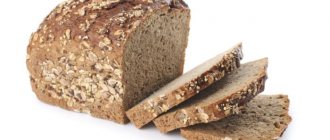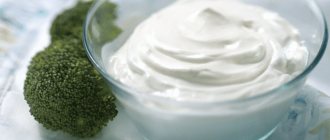Almost every person faces problems with indigestion and intestinal obstruction. This problem does not escape breastfeeding women either.
The drug market offers a lot of drugs to eliminate the symptoms that accompany indigestion and are aimed at effective treatment, but if a nursing mother has a stomach ache, not all medications are approved for use. The fact is that the milk used to feed the baby will contain medications taken by the mother, and not all of them will benefit the child. It is very important to carefully consider the issue of choosing a drug, and, above all, take into account that it should not harm the health of the newborn.
Causes
The following factors can provoke pain and discomfort in the stomach area in a nursing woman:
- Stressful impact. Those postpartum experiences that every woman faces leave their negative imprint on her health. Being under constant psycho-emotional stress, the body of a young mother begins to produce an increased amount of gastric juice containing hydrochloric acid. This chemical compound has an irritating effect on the mucous membrane of the stomach walls, causing inflammation and other negative consequences;
- Stomach prolapse. When a woman is pregnant, her organs gradually move to the sides to make room for the developing fetus. The process of natural delivery can aggravate this situation, causing prolapse of some organs, including the stomach. This condition is called gastroptosis. Its occurrence is accompanied by painful sensations in the abdominal area;
- Exacerbation of chronic pathologies. If before pregnancy a woman was diagnosed with chronic diseases of the gastrointestinal tract, then in the postpartum period these pathologies very often make themselves felt. Such diseases include gastritis, gastroduodenitis, cholecystitis and pancreatitis. Each of these diseases is accompanied by discomfort and pain in the abdominal area;
- Dietary disorder. If a young mother chooses to breastfeed her newborn baby naturally, then her body will be faced with the need to adapt to a unique diet. The diet of a nursing woman involves limiting some foods and increasing the consumption of others, which often affects the quality of digestion.

In addition, we should not forget that the cause of painful sensations in the stomach area can be radiating pain, which is caused by the following pathologies:
- Inflammatory processes in the area of the adrenal glands and kidneys;
- Intervertebral hernia of the thoracic spine;
- Pleurisy;
- Inflammatory lesions of the small intestine;
- Inflammation in the uterine cavity.
Each of these conditions can provoke discomfort and pain that is felt in the stomach area.
After breastfeeding
Superficial gastritis during breastfeeding does not require treatment, as does acute gastritis caused by Helicobacter pylori. Treatment of bacterial gastritis must be started after finishing feeding.
If the pain is unbearable, you can begin treatment by switching the child to complementary foods. During treatment, if a woman plans to breastfeed in the future, every effort should be made to preserve milk supply. To maintain lactation, you need to take vitamins for nursing mothers, massage your breasts, express milk regularly, and drink plenty of fluids.
Medicines should not be used without a doctor’s recommendation, since only a physician can determine the type of gastritis after examining gastric juice and ultrasound results. Before treatment, you should find a good gastroenterologist and follow his prescriptions.
When treating bacterial gastritis, therapeutic measures must be comprehensive. Painkillers and enveloping drugs must be combined with antibiotics. Treatment is aimed at reducing the content of hydrochloric acid, eliminating the inflammatory process and spasm, and eliminating bacteria. The Helicobacter bacterium, having entered the body, settles in it until it is destroyed by an antibacterial drug.
If a woman cannot maintain breastfeeding due to gastritis, there is no need to worry about this. Timely treatment helps slow down pathological processes, remove microbes and protect against consequences such as ulcers and stomach cancer.
Treatment
During the period of breastfeeding, a young mother cannot afford to use the list of medications that are approved for other people. This prohibition is due to the fact that any substances that enter the mother’s body, after some time, reach the body of the newborn baby through breast milk. Treatment for stomach pain in a nursing woman depends on the cause that caused the condition. Medical specialists offer the following ways to solve this problem:
- If the cause of the malaise is a violation of the diet and disorders of the digestive function, a nursing woman needs to take one of the enzymatic medications. Preparations containing pancreatic enzymes include Pancreatin, Creon 10000 and Vestal. The dosage and frequency of taking such medications should be discussed with the attending medical specialist;
- If a young mother feels not only pain, but also symptoms such as sour belching and heartburn, then this condition indicates excessive production of hydrochloric acid in the stomach. Enveloping and antacid medications will help to cope with this condition. Prominent representatives are Maalox, Almagel and Phosphalugel. These products are safe for the mother and newborn baby. They help reduce the production of hydrochloric acid and have a protective effect on the walls of the stomach.
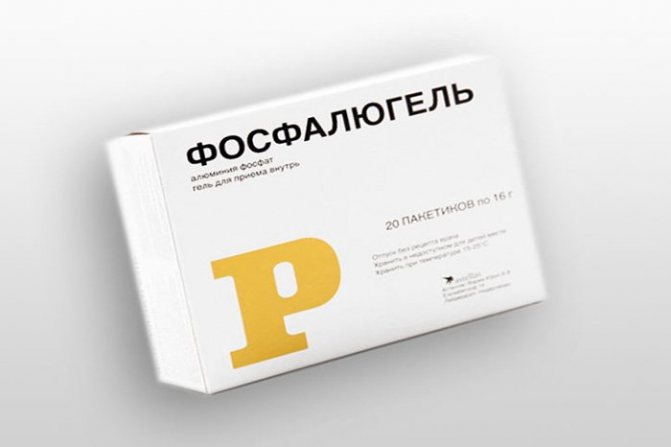
In order to avoid digestive problems, a young mother needs to normalize her diet. It is important not to consume foods such as rye bread, vegetables high in fiber, whole milk, fried potatoes and legumes. These food components can cause excessive gas formation in the intestines not only in a nursing woman, but also in a child. And what you can and should eat during lactation, read the article at the link.
If the cause of the pain is prolapse of the stomach, then this problem can only be dealt with with the participation of qualified medical specialists. Drug therapy in this case will be ineffective, so the woman will be advised of alternative treatment methods.
When digestive disorders are accompanied by excessive gas formation in the intestines of a young mother, you can use medications such as Sab Simplex and Espumisan. These medications do not have a negative effect on the body of a newborn baby. In addition, to eliminate flatulence, an infusion of chamomile flowers, caraway fruits, dill and fennel seeds is used. These natural ingredients help fight flatulence in adults and intestinal colic in newborn babies.
Pain in the stomach during breastfeeding is strictly prohibited from being treated with painkillers and other unfamiliar drugs.
Any treatment methods must be agreed with the treating medical specialist. Subscribe to our VKontakte group
How to treat
In order to effectively treat gastritis during breastfeeding, many women often use some types of herbal infusions.
These natural remedies can have a mild analgesic and calming effect, however, by and large, their effectiveness has not been proven scientifically.
When a woman in labor is diagnosed with gastritis, it may be useful for her to use herbal remedies that have an enveloping and analgesic effect.
These include:
- chamomile;
- flax seeds;
- oats;
- dill fruits;
- liquorice root.
Tinctures from these herbs, in fact, can relieve the symptoms of pain in women after childbirth. Mint also reduces the level of lactation, so you need to drink decoctions from it with extreme caution.
In order to reduce gastritis pain during breastfeeding (that is, after childbirth), it is recommended to take one spoon of flax oil in the morning on an empty stomach.
There is also a certain list of medications that, in rare cases, can be used to treat gastritis during breastfeeding, however, their effect on young children has not yet been studied.
These medications consist of:
- Gastrosidine (Famotidine).
- Digestala.
- Mezima.
- Pancreatin.
- Festala.
After childbirth, it is prohibited to take unsafe medications such as Controloc (Pantoprazole), De-Nol, Helicocin.
Among the recognized safe medicines one can note drugs like Cimetidine, Enterosgel, Gasterin.
Pain can be reduced by using Smecta, however, this remedy is not able to eliminate the causes of the disease.
You should carefully use medications such as Maalox, Almagel, Gastal, and Gaviscon.
In order to quickly relieve pain, it is allowed to use such a popular remedy as No-spa (it is often used both before and after childbirth).
If there is very severe pain accompanying gastritis, it is necessary to immediately treat gastritis. To do this, it is recommended to temporarily switch the baby to formula.
When treating stomach inflammation, it is worth remembering that if a mother has plans to breastfeed her baby in the future, she should try as much as possible to maintain the presence of milk.
In order to maintain lactation after childbirth, it is necessary to drink vitamin complexes specifically designed for nursing mothers, as well as massage the chest area, constantly express milk, and drink a sufficient amount of clean water during the day.
It is not recommended to take medications without consulting a doctor, because only an experienced doctor is able to identify the type of disease after conducting an appropriate analysis of the stomach contents and obtaining the result of an ultrasound examination.
Before starting treatment, it is necessary to search for a highly specialized specialist (usually a gastroenterologist) and strictly adhere to all his prescriptions.
When gastritis is characterized by mild symptomatic manifestations that do not cause serious problems, and a woman decides to treat gastritis without using artificial feeding, she needs to follow a number of rules.
First of all, it is necessary to normalize the daily routine and the whole way of life. A woman should be attentive to regular rest and sufficient sleep during therapy.
It’s a good idea to allocate at least 2 hours a day for sleep, as well as adjust your routine to your baby’s – both need to fall asleep at the same time.
After giving birth, a woman needs to be in the fresh air as often as possible.
In addition, an important point is to eliminate factors that provoke the development of stress (psychological and physical stress, excessive housework, etc.).
During gastritis, a nursing mother's food intake should be regular, frequent (up to six small portions per day) and complete.
If the symptoms of the disease worsen, doctors advise consuming more different light soups with cereals;
- oatmeal and buckwheat with water;
- not too fatty vegetable stew;
- fermented milk products, etc.
In general, it is necessary to eat foods that will not irritate the gastric wall, but, on the contrary, will create an enveloping effect.
The chronic form of gastritis is a very common type of disease, which can go into an exacerbation stage at some periods of life due to poor diet, excessive food consumption, prolonged nervous tension, a weak immune system, and also as a result of hormonal changes in a woman’s body.
With a high degree of probability, aggravation of symptomatic manifestations can be observed both during pregnancy and after childbirth.
It is worth noting that normalization of the condition after the discovery of gastritis during breastfeeding is quite possible.
For this purpose, it is recommended to consult a gastroenterologist in advance and find out what type of treatment will be most effective for the woman in labor.


